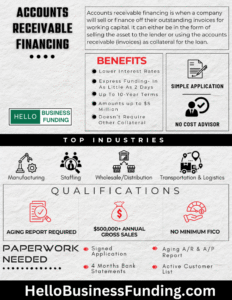Faith is a word which is used in so many ways that we so often dilute its true meaning. For example, we sometimes say …”I have faith in you”; or …“you know, I have my faith!” While these expressions have a colloquial connotation, the literal meaning of faith is much more profound.
Faith is a word which is used in so many ways that we so often dilute its true meaning. For example, we sometimes say …”I have faith in you”; or …“you know, I have my faith!” While these expressions have a colloquial connotation, the literal meaning of faith is much more profound.
Webster’s dictionary describes faith as …
• To trust
• To give allegiance to someone
• Loyalty
• Belief in and trust in God
• Complete confidence
• To believe; to trust
According to Webster’s definition, faith involves believing and trusting in someone or something to the degree that total confidence exists! We so many times express faith with a “semi-colon” attached …”I really have faith that I’m going to land this job; but I’m concerned about my lack of computer experience”. Or, “…I know that these new procedures have been successful in treating other patients; but will they work for me?” In other words, “… I’m hopeful, but not totally confident …”.
Faith is the foundation of Christianity! As Christians, we believe that Jesus Christ is the Son of God, and that He died for our sins. We declare that we stand on faith, and yet, are we sure that our footing is sound?
To understand the true meaning of faith from a Christian’s perspective, we must refer to scripture and the biblical use of the word faith.
Hebrews 11:1 reveals the biblical definition of faith …
“Now faith is the substance of things hoped for, the evidence of things not seen.” KJV
As the New Testament was originally written in Greek, it is necessary to evaluate the Greek word for faith in order to understand its depth. The Greek word “pistis” translates to “faith” in English meaning…
• Conviction (totally convinced)
• Firm persuasion
• Belief in truth
• Reality
• Assurance
In Hebrews 11:1 ”faith” is the substance of things hoped for; the evidence of things not seen means that persuasion is not the outcome of imagination, but is based on fact, and as such it becomes the basis for hope.
The Greek Word, “pistis”, is translated “faith”; or, “believe”. And so, the words faith and believe are interchangeable. As Christians, we are referred to as “believers” and, with “poetic license”, could be called “faith-ers”. In other words, we need to live by that in which we believe!
Living by faith requires an understanding of the principals on which we believe. We believe in the authority of God and the power of prayer!
• We believe that God is Who He says He is;
• That He can do what He says He can do;
• That we are who he says we are:
• That all things are possible through Christ Who strengthens us;
• And that God’s Word is alive and active in us.
Faith is the foundation of Christianity …without it, it is impossible to please God (Hebrews 11:6). Our faith is like a living organ; it grows on a daily basis. Our faith will always be tested; and if it is not tested, it is not faith.
Faith has to be tested in order to be proven that it is faith! An inactive faith is a dead faith! A faith that is not readily used will dry up and die.
Trust is another dynamic of faith! Trust activates our faith. When we begin to trust God to do what He says (in the Word of God) He can do, we will witness the miraculous occur and therefore see our faith grow. We must put action to our faith rather than just “saying” that we have faith. We must place our faith “on the line” with God and trust Him to release His promise to us.
There is a story about two farmers whose land adjoined. They were in the midst of a long, severe drought. Each man was a believer and looked forward to the daily prayer time with his neighbor. Early each morning they prayed asking God to bring rain to the parched land. They were in desperate need and continued to cry out to God for rain.
One day after prayer one of the farmers went to his field with a cold glass of water in his hand. Walking through the rock-hard fields and breathing dust into his nostrils, he again asked God to bring rain. He complainingly said,
“…God why don’t You bring rain to these fields; You know how badly we need it to harvest our crop. We have bills to pay and unless we bring in this crop, we will surely be unable to pay our debts …and then the banks will foreclose on our land; we will lose everything!”
This farmer wined and wished for rain. He continued to wait!
The other farmer also went to his fields after praying with his friend. He too went with a cold glass of water to the parched, dusty land. But he also took a shovel, hoe, and rake with him. He began to pray with thanksgiving,
“…Oh Lord, I’m thankful for the fields You have given me. Thank You for last year’s successful crop. Thank You that You will provide me with another fruitful harvest. Lord, I’m grateful that I’ll have enough left over to help others in need. Lord I’m asking You to bring rain to this land so that I can harvest this crop. Thank you, Lord for the rain. Lord, I’m making preparations for the harvest because I know with certainty that You are faithful and You will provide. Thank you, Lord.”
This farmer believed and received! The rains came to his fields!
This story illustrates how we are to activate our faith. As we pray for a need… for physical healing, finances, relationships, children, etc. we release God’s answer by preparing to receive it. We must begin to make preparations to walk in the answer, to see … the healing, the increase in finances, relationships restored, children prospering spiritually, etc. We have to activate our faith by trusting God to do what He says in His Word. He tells us to pray (1Thessalonians 5:17). He tells us to believe (Matthew 21:22). He says He will answer our prayers (John 15:7)!
God is faithful! He will never forsake us!
Place your faith in Him! Trust Him!




